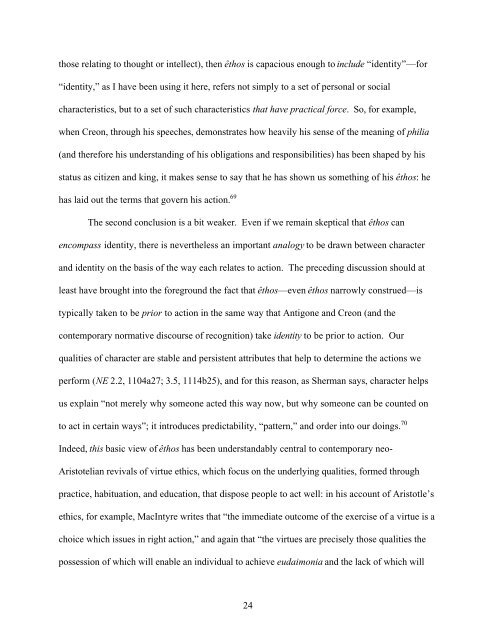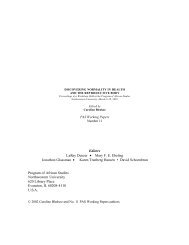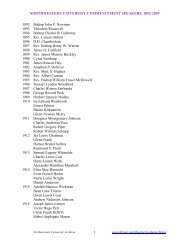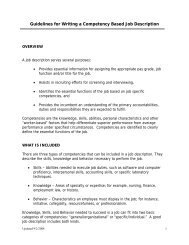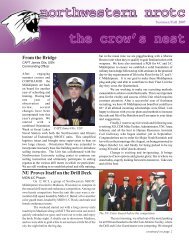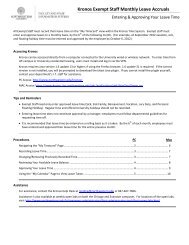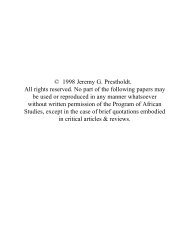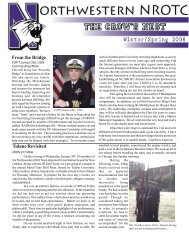TRAGIC RECOGNITION: ACTION AND IDENTITY IN ANTIGONE ...
TRAGIC RECOGNITION: ACTION AND IDENTITY IN ANTIGONE ...
TRAGIC RECOGNITION: ACTION AND IDENTITY IN ANTIGONE ...
Create successful ePaper yourself
Turn your PDF publications into a flip-book with our unique Google optimized e-Paper software.
those relating to thought or intellect), then êthos is capacious enough to include “identity”—for<br />
“identity,” as I have been using it here, refers not simply to a set of personal or social<br />
characteristics, but to a set of such characteristics that have practical force. So, for example,<br />
when Creon, through his speeches, demonstrates how heavily his sense of the meaning of philia<br />
(and therefore his understanding of his obligations and responsibilities) has been shaped by his<br />
status as citizen and king, it makes sense to say that he has shown us something of his êthos: he<br />
has laid out the terms that govern his action. 69<br />
The second conclusion is a bit weaker. Even if we remain skeptical that êthos can<br />
encompass identity, there is nevertheless an important analogy to be drawn between character<br />
and identity on the basis of the way each relates to action. The preceding discussion should at<br />
least have brought into the foreground the fact that êthos—even êthos narrowly construed—is<br />
typically taken to be prior to action in the same way that Antigone and Creon (and the<br />
contemporary normative discourse of recognition) take identity to be prior to action. Our<br />
qualities of character are stable and persistent attributes that help to determine the actions we<br />
perform (NE 2.2, 1104a27; 3.5, 1114b25), and for this reason, as Sherman says, character helps<br />
us explain “not merely why someone acted this way now, but why someone can be counted on<br />
to act in certain ways”; it introduces predictability, “pattern,” and order into our doings. 70<br />
Indeed, this basic view of êthos has been understandably central to contemporary neo-<br />
Aristotelian revivals of virtue ethics, which focus on the underlying qualities, formed through<br />
practice, habituation, and education, that dispose people to act well: in his account of Aristotle’s<br />
ethics, for example, MacIntyre writes that “the immediate outcome of the exercise of a virtue is a<br />
choice which issues in right action,” and again that “the virtues are precisely those qualities the<br />
possession of which will enable an individual to achieve eudaimonia and the lack of which will<br />
24


